
ALCOHOL-CLINICAL AND EXPERIMENTAL RESEARCH
Scope & Guideline
Shedding light on alcohol-related research for better health outcomes.
Introduction
Aims and Scopes
- Alcohol Use Disorders and Treatment:
Research on the etiology, prevalence, and treatment of alcohol use disorders, focusing on pharmacological and psychotherapeutic interventions as well as innovative treatment methodologies. - Neurobiological Effects of Alcohol:
Studies investigating the impacts of alcohol on brain function, neuroplasticity, and related neurobiological mechanisms, including the effects of alcohol on cognitive and emotional processes. - Epidemiology and Public Health:
Epidemiological studies examining alcohol consumption patterns, risk factors, and the public health implications of alcohol use, including policy impacts and community health interventions. - Prenatal Alcohol Exposure:
Research on the effects of prenatal alcohol exposure on fetal development, including studies on fetal alcohol spectrum disorders (FASD) and associated neurodevelopmental outcomes. - Social and Environmental Influences:
Exploration of the social, cultural, and environmental factors that influence alcohol consumption behaviors and attitudes, including studies on stigma, norms, and peer influences. - Coping Mechanisms and Alcohol Use:
Examinations of how various coping strategies, including emotional regulation and social support, impact alcohol use and recovery outcomes. - Alcohol’s Interaction with Other Substances:
Research on the co-use of alcohol with other substances, including cannabis and opioids, and their combined effects on health and behavior.
Trending and Emerging
- Digital Interventions and Technology:
There is a significant increase in research exploring the use of digital tools and technology-based interventions for alcohol use, including apps and online support systems. - Neuroimmune Interactions:
Emerging studies are increasingly focusing on the neuroimmune aspects of alcohol use disorder, exploring how immune responses affect addiction and recovery. - Intersectionality in Alcohol Use:
Research examining the intersection of alcohol use with factors such as race, gender identity, and socioeconomic status is gaining traction, reflecting a broader understanding of how diverse experiences shape alcohol-related outcomes. - Psychological Mechanisms in Alcohol Use:
There is a growing emphasis on understanding the psychological mechanisms behind alcohol use, including coping strategies, emotional regulation, and the impact of trauma. - Prevention and Early Intervention Strategies:
Emerging studies are focusing on preventive measures and early intervention strategies aimed at reducing alcohol use among high-risk populations, particularly adolescents and young adults. - Longitudinal and Ecological Momentary Assessment (EMA) Approaches:
The use of EMA and longitudinal designs to capture real-time data on alcohol consumption and its contextual factors is on the rise, providing more nuanced insights into drinking behaviors. - Genetic and Epigenetic Studies:
An increasing number of studies are exploring genetic and epigenetic factors involved in alcohol use disorders, identifying biomarkers that may predict vulnerability and treatment responses.
Declining or Waning
- Traditional Behavioral Studies:
There is a noticeable decrease in studies focused solely on traditional behavioral assessments of alcohol use without integrating neurobiological or psychosocial factors. - Alcohol and Gender Studies:
Research specifically examining gender differences in alcohol use and its effects has become less frequent, possibly overshadowed by broader psychosocial and community-based studies. - Longitudinal Studies on Alcohol Use Patterns:
While longitudinal studies remain important, there appears to be a decline in the number of publications focusing exclusively on tracking alcohol use patterns over time without considering co-occurring substance use or mental health factors. - Alcohol Consumption and Acute Outcomes:
Research on immediate physiological effects of alcohol consumption, such as acute intoxication studies, is less prominent compared to investigations into chronic effects and long-term outcomes. - Historical Alcohol Consumption Trends:
There has been a reduction in studies focusing on historical trends of alcohol consumption, as more attention is drawn to current consumption patterns and their immediate implications.
Similar Journals
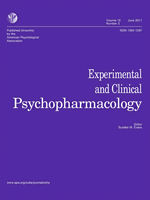
EXPERIMENTAL AND CLINICAL PSYCHOPHARMACOLOGY
Leading the Way in Psychopharmacological ResearchEXPERIMENTAL AND CLINICAL PSYCHOPHARMACOLOGY, published by the American Psychological Association, stands as a pivotal resource within the fields of pharmacology and psychiatry. With an ISSN of 1064-1297 and an E-ISSN of 1936-2293, this journal contributes significantly to the understanding of psychopharmacological interventions through its rich array of research articles, reviews, and clinical studies. Classified within the Q2 category in both Pharmacology and Psychiatry and Mental Health, it reflects a solid standing in academic performance, evidenced by its rankings in Scopus, where it places within the top half of its categories. Spanning from 1993 to 2024, it seeks to provide an essential platform for the dissemination of knowledge and advancements that influence clinical practice and therapeutic approaches. Although not an open-access journal, its impact on the development of evidence-based psychopharmacological treatments cannot be overstated, making it a vital resource for researchers, clinically active professionals, and students eager to stay abreast of cutting-edge developments in mental health and pharmacology.

International Journal of Alcohol and Drug Research
Unraveling the complexities of alcohol and drug use.Welcome to the International Journal of Alcohol and Drug Research, an esteemed publication dedicated to advancing the understanding and research surrounding alcohol and drug-related issues. Published by Ohio State University, College of Social Work, this journal serves as a vital resource for professionals and scholars engaged in social sciences, public health, and epidemiological studies. Established as an Open Access journal since 2012, it ensures that valuable research findings are readily accessible to all, promoting awareness and disseminating knowledge critical in the fight against substance abuse. With a commendable impact in the field, the journal occupies a notable position in Scopus rankings, showcasing its contribution to social health, public health, and epidemiology. Covering an extensive scope with a commitment to rigorous research, the journal aims to foster collaboration between researchers, policymakers, and practitioners, ultimately driving innovative solutions and best practices in the realm of alcohol and drug research.
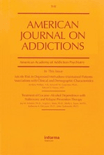
AMERICAN JOURNAL ON ADDICTIONS
Cutting-edge Insights into Addiction ResearchThe AMERICAN JOURNAL ON ADDICTIONS, published by WILEY, stands as a premier publication within the realms of Clinical Psychology, Medicine, and Psychiatry. With its ISSN 1055-0496 and E-ISSN 1521-0391, the journal has been a critical resource since its inception in 1992, consistently evolving to encompass a wide scope of addiction research and its implications on public health. Renowned for its rigorous peer-reviewed articles, it boasts impressive rankings, including Q1 status in both Clinical Psychology and Medicine (miscellaneous) for 2023, and a respectable Q2 in Psychiatry and Mental Health. As a foundational platform for disseminating cutting-edge research, the journal aims to facilitate the exchange of knowledge among researchers, healthcare professionals, and educators alike. Its significant impact on the academic community is underscored by its Scopus rankings—placing it in the top 26% of Clinical Psychology journals and the top 28% in Medicine (miscellaneous). By fostering an understanding of addiction and its treatments, the AMERICAN JOURNAL ON ADDICTIONS plays an essential role in guiding innovative practices and shaping future policies within the field.
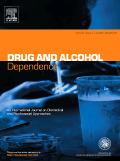
DRUG AND ALCOHOL DEPENDENCE
Elevating the discourse on drug and alcohol dependencies.Drug and Alcohol Dependence is a premier journal published by Elsevier Ireland Ltd, dedicated to the rigorous exploration and analysis of substance use disorders, including drug and alcohol dependencies. With its established history since 1975 and a remarkable convergence of research extending to 2024, the journal holds a prestigious position within the academic community, evidenced by its Q1 ranking in multiple categories, including Pharmacology, Psychiatry and Mental Health, and Toxicology for 2023. It ranks impressively among its peers, underscored by Scopus rankings of #46, #99, and #27 in key fields related to medical pharmacology and toxicology. As a non-open access title, it caters to a global readership of researchers, professionals, and students, providing them with peer-reviewed insights into critical developments and innovative methodologies in the field. The journal’s commitment to advancing knowledge and understanding of drug and alcohol dependence is essential for addressing the global challenges posed by substance use, making it a valuable resource for all stakeholders in public health and clinical practice.
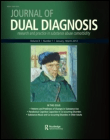
Journal of Dual Diagnosis
Elevating interdisciplinary dialogue in mental health.The Journal of Dual Diagnosis, published by Routledge Journals, Taylor & Francis Ltd, is a leading interdisciplinary platform dedicated to the critical study of co-occurring mental health and substance use disorders. With its ISSN 1550-4263 and E-ISSN 1550-4271, this esteemed journal has been at the forefront of advancing research and clinical practice since its inception in 2004, and continues to serve as a vital resource until 2024. Ranked in the second quartile (Q2) in Psychiatry and Mental Health and positioned at the 64th percentile in the Scopus rankings, it emphasizes the importance of integrating care across various domains of health. Although not open access, it offers a wealth of peer-reviewed articles, case studies, and reviews suitable for researchers, practitioners, and students alike, aiming to enhance our understanding and treatment of dual diagnosis. The journal's commitment to addressing the complexities of dual disorders not only informs research but also shapes policy and clinical guidelines, making it an essential read for anyone involved in these critical areas of mental health.
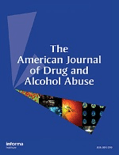
AMERICAN JOURNAL OF DRUG AND ALCOHOL ABUSE
Empowering Scholars with Insights into Addiction DynamicsAmerican Journal of Drug and Alcohol Abuse is a highly regarded publication in the field of substance abuse research, published by Taylor & Francis Inc. With its inception in 1974, this journal has become an essential resource for scholars and practitioners interested in clinical psychology, psychiatry, and the multifaceted issues surrounding drug and alcohol use. It holds a notable Q2 ranking in Clinical Psychology, Medicine (miscellaneous), and Psychiatry and Mental Health, emphasizing its impact and relevance in these domains. The journal's 2023 Scopus rankings further highlight its standing, placing it in the top quartile of publications with established readership and citation metrics. Researchers and students can benefit from its comprehensive articles that delve into the complexities of substance use, treatment methodologies, and the socio-psychological underpinnings of addiction. Whether you seek to access cutting-edge studies or contribute to ongoing discourse in the field, the American Journal of Drug and Alcohol Abuse serves as a vital hub for knowledge dissemination and scholarly engagement.

Journal of Mental Health and Human Behaviour
Exploring the intersection of mental health and human behaviour.The Journal of Mental Health and Human Behaviour is a distinguished publication dedicated to advancing the field of mental health, focusing on innovative research and practical applications that enhance human behaviour and overall well-being. Published by WOLTERS KLUWER MEDKNOW PUBLICATIONS, this journal has been an open-access platform since 2014, enabling wider dissemination of knowledge and fostering collaboration among researchers, professionals, and students globally. With an ISSN of 0971-8990 and E-ISSN 2543-1897, it aims to provide a comprehensive array of peer-reviewed articles that cover various facets of mental health, including psychological theories, therapeutic practices, and sociocultural influences. The journal plays an integral role in bridging the gap between research and practice, making it essential for those who are committed to improving mental health outcomes and advocating for human behaviour change. Published in India, the journal not only highlights regional issues but also contributes to international discussions on mental health trends and interventions, affirming its importance in a rapidly evolving field.
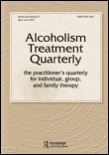
Alcoholism Treatment Quarterly
Advancing the Science of Alcoholism TreatmentAlcoholism Treatment Quarterly is a reputable journal dedicated to advancing the understanding of alcohol use disorders and their treatment. Published by Routledge Journals, Taylor & Francis Ltd, this journal has established itself as an essential resource within the fields of Medicine and Psychiatry and Mental Health, evidenced by its placement in the Q3 category for both disciplines in 2023. With a comprehensive scope covering the multifaceted aspects of alcoholism treatment, the journal serves as a vital platform for researchers, clinicians, and students to share and access high-quality, peer-reviewed articles. Although it is not an open-access journal, it is widely recognized for its contribution to the field, having been in continuous publication since 1984 and looking forward to its 40th anniversary in 2024. The journal aims to promote evidence-based practices and foster discourse on innovative treatment methods and research trends, making it an indispensable asset for anyone involved in the prevention and treatment of alcohol-related issues.

Alcohol Research-Current Reviews
Promoting open access to critical alcohol studies.Alcohol Research-Current Reviews is a pivotal journal dedicated to advancing the understanding of alcohol-related issues and promoting scientific discourse in the fields of addiction and public health. Published by the National Institute on Alcohol Abuse and Alcoholism, this journal serves as a comprehensive platform that consolidates contemporary reviews on a wide array of topics related to alcohol, including its biological effects, societal implications, and prevention strategies. Despite its coverage in Scopus being discontinued, the journal remains a respected resource among researchers and practitioners, supporting the dissemination of important findings and fostering ongoing education in alcohol research. The open access option ensures that valuable research is readily available to an expansive audience, further enhancing the journal's impact in the academic community. With a ISSN of 1535-7414 and E-ISSN 1930-0573, the journal is committed to providing high-quality, peer-reviewed content that informs and influences public policy and health interventions.

Addiction Science & Clinical Practice
Innovative solutions for complex addiction challenges.Addiction Science & Clinical Practice is a premier open-access journal dedicated to advancing the understanding and treatment of addiction through evidence-based research and clinical practice. Published by BMC in the United Kingdom since 2007, this journal has significantly impacted the fields of Clinical Psychology, Medicine, and Psychiatry and Mental Health, proudly securing a Q1 ranking in multiple categories as of 2023. With an emphasis on high-quality research, the journal provides an inclusive platform for the dissemination of innovative findings and clinical insights that address the complexities of addiction. Researchers, practitioners, and students alike benefit from its unrestricted access since 2012, allowing for widespread dissemination of knowledge. Located at CAMPUS, 4 CRINAN ST, LONDON N1 9XW, the journal continues to lead the way in fostering collaboration and informing best practices in addiction science.